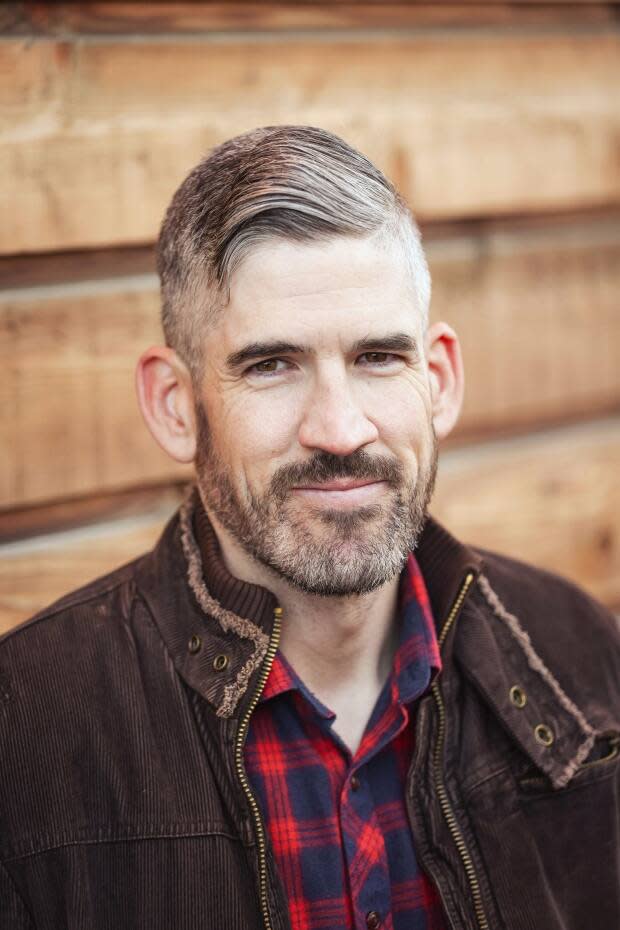Yellowknife to get 3 new rental apartment buildings, says developer

Yellowknife is set to get three new rental apartment buildings in the next few years, according to a developer behind the projects.
Milan Mrdjenovich, son of longtime northern developer Mike Mrdjenovich, says the buildings will add 184 units to Yellowknife's tight rental market.
"There is a housing crisis," said Mrdjenovich. "It's not a secret that it's very difficult to find a place to live up there and we just wanted to add some more units to our portfolio and just kind of keep growing."
The building projects are: a 60-unit building at the bottom of School Draw Avenue; a 54-unit building across from Chateau Nova, a hotel built by his father, Mike Mrdjenovich; and a 70-unit building in the Niven neighbourhood.
The first two buildings are scheduled to open in the fall of next year, while construction on the Niven property is set to begin in the spring, said Mrdjenovich.

The Northwest Territories is in a housing crunch, and according to a 2021 report from the Canada Mortgage and Housing Corporation (CMHC), both vacancies and the rental supply have declined.
The total private apartment vacancy rate dropped from 4.1 per cent in 2019 to 3.6 per cent in 2020, states the report. Meanwhile, the rental apartment supply shrank by 2.2 per cent.
Indeed, there hasn't been much construction of rental apartments over the last two decades.
The CMHC report says more than two thirds of rental apartments in the city were built before 2000.
In Whitehorse by contrast, 350 rental apartments were under construction in early 2021 alone.
'Demand is very high'
Rob Warburton, a Yellowknife city councillor and local developer, is glad about the addition of 184 rental units, but his excitement is measured.
"That's not a huge amount relative to the overall rental stock in the city, so I think that'll be sucked up pretty fast, like demand is very high," he said.
"[The new apartments] might alleviate a bit of pressure on the rental market, but it's for sure not going to come close to meeting what the demand is right now."
Warburton understands why developers haven't been keen on putting up new apartment buildings in Yellowknife. It's risky, costly and logistically challenging, so there aren't many people willing to do it.
However, he added, the CMHC recently launched a program meant to spur the construction of multi-unit rental properties — especially those that offer affordable, energy efficient and/or accessible units — which has driven new interest in building.
The CMHC says its Multi-Unit Mortgage Loan Insurance product uses a point system to measure a rental housing project's "commitment to affordability, accessibility [and/or] climate compatibility." The more points, "the broader the incentives are, including lower insurance premiums and longer amortization rates."
But rising interest rates remain a concern. Warburton said they're the "biggest barrier here going forward" for new multi-unit residential developments in Yellowknife.

Since March, the Bank of Canada has raised interest rates six times, from 0.25 per cent to 3.75 per cent, and it warns rates will climb higher still.
It's one reason why, Warburton said, policymakers should look at how to encourage smaller developments, like secondary suites and laneway homes.
"Doing a basement suite or a house in your backyard, that's a scale of project that the average homeowner might be able to take on with some assistance," he said. "And by assistance I mean, making it easier to build, easier to permit … easier to finance."
Tom McLennan, another city councillor, said in the new year, council will re-examine the Development Incentive Program bylaw, which provides tax abatements for residential developments.
Council may also look at "defining what 'affordable' means, [and] including some incentives for affordable housing," he said.
Mrdjenovich said rental rates for the new units will depend on building costs, adding that prices on materials, transportation and labour are high right now.
No more plans to build in Yellowknife, says Mrdjenovich
After these three buildings go up, Mrdjenovich said, he has no more plans to develop in Yellowknife.
He said it's difficult to build in the city, in part because of the appeal process, which can delay construction by months.
"Anybody can put a $25 appeal in and the appeal board is obliged to hear it," he said. "We've already gone through that process on every single one of our builds up there."
Warburton said he was appointed to the appeal board in his capacity as a city councillor, but hasn't yet heard any appeals. He too takes issue with aspects of the appeal process.
He said the process is meant for "meaningful public input" when it appears the zoning bylaw or development permits haven't been followed, but it's also been used "as a weapon" to delay or stop projects altogether.
The problem, he said, is the process is enshrined in territorial legislation, so the city alone can't change it.
City of Yellowknife administration did not respond to a request for comment on the appeal process, or answer questions about new residential building projects in the city, before deadline.


